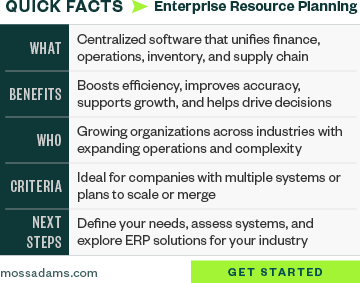Enhance Business Cohesion with Effective Salesforce and NetSuite Integration

Business management tools are essential for maintaining organization and cohesion across the enterprise. While many systems leverage cloud technology for data storage and business transaction processing, the financial aspect often remains disconnected. It’s common for Customer Relationship Management (CRM) systems and financial management software to operate independently, making it difficult to navigate software integration complexities.
Integrating Salesforce and NetSuite into an organization’s technology landscape provides a solution to this challenge. Salesforce excels in CRM capabilities, while NetSuite is renowned for its ERP and back-office solutions. Including these platforms in a technology stack enables companies to effectively monitor clients throughout the sales process, analyze the sales pipeline, and access real-time distribution, manufacturing, and financial data—with two synchronized systems. For businesses offering subscription-based products or services, the exponentially growing volume of transactions and related reporting complexity demands a synchronized approach.
Create a cohesive platform that enhances visibility, optimizes back-office operations, and converts opportunities into sales with insights into the key benefits of Salesforce and NetSuite and how to integrate them into your landscape effectively.
How to Evaluate New Technology Solutions
When evaluating new business solutions, it’s crucial to select platforms that use open Application Programming Interfaces (APIs). This promotes seamless interaction with other web-based software through technologies such as REST, SOAP, and JavaScript. For instance, Salesforce stands as the leading CRM platform, while comprehensive Enterprise Resource Planning (ERP) systems, like NetSuite, incorporate CRM functionalities.
Many organizations prefer to retain their existing CRM infrastructure rather than migrate to a new system. By integrating Salesforce and NetSuite—provided both platforms support OpenAPI—businesses can achieve a unified operational framework. This doesn’t require a long and expensive build-and-maintain investment as there are buy-and-subscribe options available that are more cost effective and prevent teams from building an integration solution from scratch, like 360 Subscription Billing.
Key Benefits of the Salesforce-NetSuite Combination
Integrating Salesforce and NetSuite isn’t about replacing existing systems; it’s about streamlining business processes. Leveraging the Salesforce-NetSuite combination delivers significant business benefits while creating platform cohesion.
Accounting Efficiency
While Salesforce adeptly manages customer information, it lacks comprehensive accounting functionalities. Integrating NetSuite with Salesforce allows organizations to maintain a holistic view of customer interactions alongside financial data, facilitating a seamless lead-to-cash process and enhanced back-office visibility.
Optimized Supply Chains
Supply chains are critical to business operations. ERP software, such as NetSuite, plays a vital role in maintaining a uniform database of inventory, thereby preventing shortages and surpluses. Integration with a robust CRM system ensures real-time insights into orders, inventory levels, and financial metrics, enabling swift decision-making and operational agility.
A cloud-based ERP solution like NetSuite enables supply chain organizations to mitigate shortages and prevent bottlenecks. By integrating NetSuite with a robust CRM system, businesses can achieve comprehensive visibility into every order, including its origin, destination, timing, associated company expenses, and profit margins—all consolidated within a single platform.
Enhanced eCommerce Capabilities
In today’s digital landscape, an online presence is essential for profitability. NetSuite not only offers powerful financial management tools but also supports eCommerce functionalities. By integrating with an established CRM platform, businesses can efficiently manage both B2C and B2B sales from a single database, enhancing visibility and revenue potential.
Expedite Subscription Sales to Cash
Creating a network with seamless connectivity between Salesforce and NetSuite provides a responsive circular sales-to-cash process that can scale easily as your customers grow, cancel, or renew their subscriptions. Salesforce CRM teams can quote new opportunities, then see those flow into incremental recurring revenue orders and invoices in NetSuite ERP.
Integrate Salesforce and NetSuite Effectively
To effectively integrate Salesforce and NetSuite, organizations need a connection that allows both systems to operate in tandem, providing real-time visibility throughout the lead-to-customer-to-cash cycle.
With most modern integration solutions, customer records entered in Salesforce are automatically accessible in NetSuite, enabling the creation of quotes and sales orders without redundant data entry. These integrations minimize human error and streamline operational efficiency.
Common Integration Features and Benefits
- Access to real-time data and financial insights
- Automatic synchronization of contacts and customer information
- Creation of quotes and sales orders in real-time
- Instant data updates for the most accurate information
- Comprehensive tracking of sales orders from initiation to fulfillment and billing
- Customizable integration objects and fields in order to meet specific organizational needs
We’re Here to Help
To learn how your organization can benefit from integrating Salesforce and NetSuite into its business management landscape, contact your Moss Adams professional.